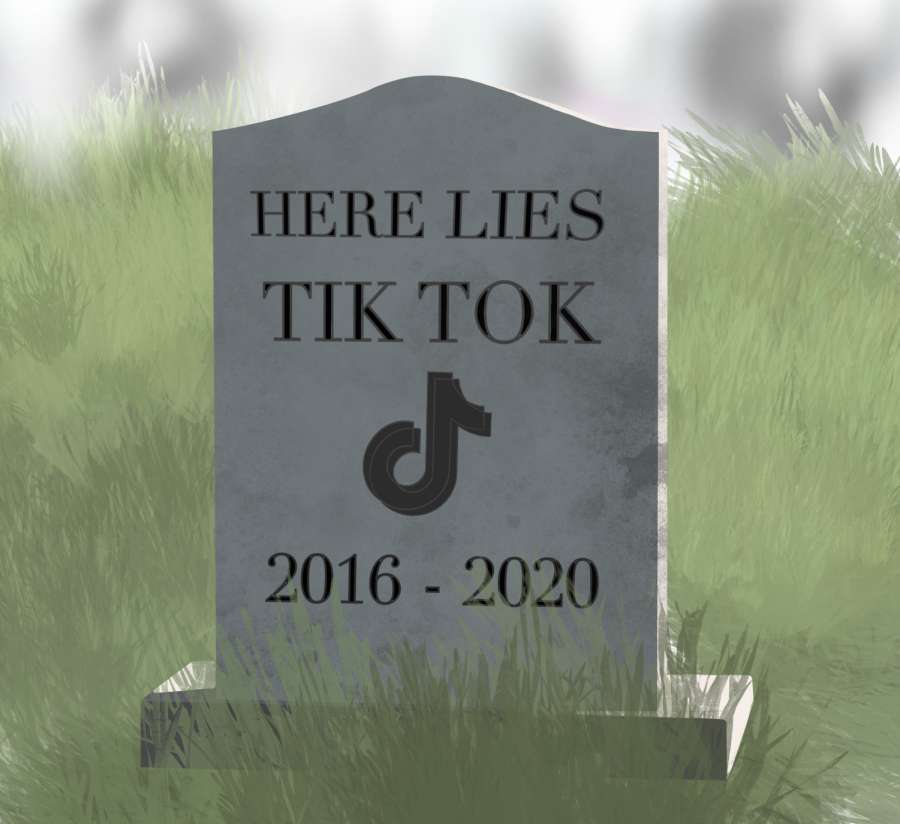Is TikTok toxic?
September 30, 2020
It is no secret that the social media platform TikTok has taken the world by storm over the last year. Almost everyone has an account on the mobile application, or has, at minimum, heard of the latest trends and viral videos that the app serves to incubate. Its enduring popularity made it a staple of modern popular culture, and it appeared increasingly likely that the app would become a social media staple in the tradition of Instagram, Twitter and Snapchat. But late in July of this year, U.S. President Donald Trump announced that TikTok would be banned in the United States to protect the personal information and data of American users from the Chinese government. Since TikTok is owned by a Chinese company, the app was deemed as a national security threat.
The enactment date for this ban on Sept. 28 loomed large over the app. For the past few months stakeholders at ByteDance, the Beijing-based technology firm that created the app in 2012, scrambled to work out a deal to sell the app to an American enterprise; yet as if by the intercession of the divine, merely hours before the ban was set to take effect, a federal court issued an injunction against Trump’s ban. The injunction resulted from TikTok’s successful argument in court that the ban was unconstitutional, violating the Due Process Clause of the Fourteenth Amendment. Many TikTok users are relieved because of this postponement and the possibility of the app being bought by another American company; however, I felt indifferent about this decision because I am not a TikTok devotee.
Although the app is primarily known for its dance videos, TikTok has become a platform for sharing – personal information, mental health concerns, political beliefs and even financial data – and breeds a good degree of oversharing as well. TikTok offers an intimacy that no other social media does, and there is a nontrivial downside to that.
I feel like I am one of a small group who does not find this app to be more entertaining than troublesome. A cursory glance at many common posts on the app will reveal negative and toxic attributes that greatly impact the mental health of its users, mainly teenagers and young adults. I know that I’ve found myself going down a rabbit hole of random TikTok videos for hours at a time, wasting almost an entire day scrolling. I can’t remember a time where I’ve exited the app feeling happy or even remotely satisfied with myself. This stems from what I’ve observed is the type of content that is extremely popular within the platform.
Some of the most popular posts involve “how to lose weight TikToks” or “what I eat in a day.” These videos are essentially exactly what they seem: how the individual lost weight or showing what the said person eats in a day. These videos are not inherently destructive, but their ultimate problem is the effect that they have on the impressionable people who view them. The comments that I’ve noticed on these types of posts are usually young girls either comparing what they eat, or how their body looks, to the person in the video; even worse, some manage to actively tear themselves down about the content that they are being exposed to. This is extremely problematic — it can not only trigger people with body image issues and eating disorders to have toxic thoughts but may also influence some people to develop those body image issues independently. TikTok has become the ideal platform for endless, invidious comparison.
On the other hand, I do appreciate and understand that TikTok has been a vehicle for some people to connect to others whom they see as similar or maybe going through similar experiences. However, I do think that there is a lot of problematic content on TikTok like I have stated before that need not be accessible for vulnerable people. There are many larger issues at hand around the globe currently, but once an effort can be made to evaluate the impact of TikTok, it must be done. I think that many would find themselves better off without it.





















